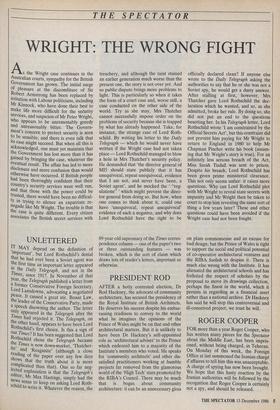UNLETTERED
IT MAY depend on the definition of `important', but Lord Rothschild's denial that he had ever been a Soviet agent was the first time an important letter appeared in the Daily Telegraph, and not in the Times, since 1917. In November of that year, the Telegraph published a letter from a former Conservative Foreign Secretary, Lord Lansdowne, advocating a negotiated Peace. It caused a great stir. Bonar Law, the leader of the Conservative Party, made a speech disowning the author. The letter Only appeared in the Telegraph after the Times had rejected it. The Telegraph, on the other hand, appears to have been Lord Rothschild's first choice. Is this a sign of our Times? It has been suggested that Lord Rothschild chose the Telegraph because the Times is now down-market, 'Thatcher- ite' and 'Reaganite' (although a close reading of the paper over any few days shows that the truth about it is more complicated than that). One so far neg- lected explanation is that the Telegraph's editor, Mr Max Hastings, simply had the news sense to keep on asking Lord Roth- schild to write it. Whatever the reason, the 69-year-old supremacy of the Times corres- pondence column — one of the paper's two or three outstanding features — was broken, which is the sort of claim which draws lots of reader's letters, important or otherwise.


































































 Previous page
Previous page